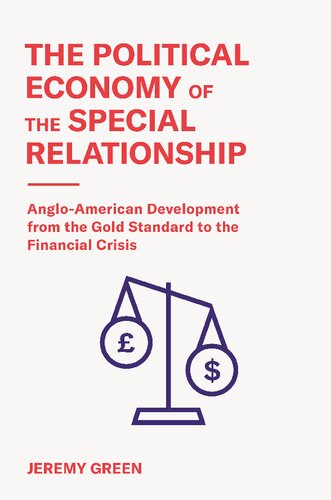

Most ebook files are in PDF format, so you can easily read them using various software such as Foxit Reader or directly on the Google Chrome browser.
Some ebook files are released by publishers in other formats such as .awz, .mobi, .epub, .fb2, etc. You may need to install specific software to read these formats on mobile/PC, such as Calibre.
Please read the tutorial at this link: https://ebookbell.com/faq
We offer FREE conversion to the popular formats you request; however, this may take some time. Therefore, right after payment, please email us, and we will try to provide the service as quickly as possible.
For some exceptional file formats or broken links (if any), please refrain from opening any disputes. Instead, email us first, and we will try to assist within a maximum of 6 hours.
EbookBell Team

5.0
88 reviewsHowAmerica's global financial power was created and shaped through its special relationship with Britain
The rise of global finance in the latter half of the twentieth century has long been understood as one chapter in a larger story about the postwar growth of the United States. The Political Economy of the Special Relationship challenges this popular narrative. Revealing the Anglo-American origins of financial globalization, Jeremy Green sheds new light on Britains hugely significant, but often overlooked, role in remaking international capitalism alongside America.
Drawing from new archival research, Green questions the conventional view of international economic history as a series of cyclical transitions among hegemonic powers. Instead, he explores the longstanding interactive role of private and public financial institutions in Britain and the United Statesmost notably the close links between their financial markets, central banks, and monetary and fiscal policies. He shows that Americas unparalleled post-WWII financial power was facilitated, and in important ways constrained, by British capitalism, as the United States often had to work with and through British politicians, officials, and bankers to achieve its vision of a liberal economic order. Transatlantic integration and competition spurred the rise of the financial sector, an increased reliance on debt, a global easing of regulation, the ascendance of monetarism, and the transition to neoliberalism.
From the gold standard to the recent global financial crisis and beyond, The Political Economy of the Special Relationship recasts the history of global finance through the prism of Anglo-American development.